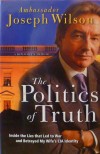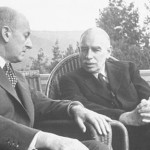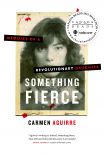Netanyahu & the Right Wing vs. President Obama
Trenchant and disturbing analysis by Andrew Sullivan, who sees a disturbing strategy by Israeli Prime Minister Benjamin Netanyahu, in concert with right-wingers in the U.S., to depose President Obama. From Sullivan’s piece, “Obama’s Most Dangerous GOP Opponent.”
I don’t think you can understand the Republican strategy for this election without factoring in a key GOP player, Benjamin Netanyahu. He already has core members of the US Congress siding openly with him against the US president. . . . Netanyahu’s war would be designed to rile up not only his own neo-fascist base, but also encourage American evangelical voters to turn out against Obama, the “anti-Christ”, while other Greater Israel fanatics, like Sheldon Adelson, keep bankrolling as many Greater Israel GOP nominees as they can. A global war which polarizes America and the world is exactly what Netanyahu wants. And it is exactly what the GOP needs to cut through Obama’s foreign policy advantage in this election. Because it is only through war, crisis and polarization that extremists can mobilize the emotions that keep them in power. They need war to win.
It should be noted that Majority Leader Eric Cantor has already made clear he will side with the PM in a confrontation with President Obama. Following the midterm elections, in November 2010, after a one-on-one meeting with Netanyahu, Cantor said “The new Republican majority will serve as a check on the Administration.” About this, veteran correspondent for the Jewish Telegraphic Agency Ron Kampeas wrote, “I can’t remember an opposition leader telling a foreign leader, in a personal meeting, that he would side, as a policy, with that leader against the president.”
So, if Israel attacks Iran, and Cantor and the Republican presidential candidates are all watching Netanyahu’s back, who’s going to be in the President’s corner?
_____
- 19% of Jewish Israelis support a strike against Iran even without the backing of the United States.
- 42% say they support only if there is US support for the move.
- 32% say they don’t support it under any circumstances.
A clear majority, 74%, either don’t support attacking Iran or would do so only with the support of the U.S. Yet, Netanyahu is showing signs of going it alone. His unilateralism is reminiscent of George W. Bush’s prior to the invasion of Iraq in 2003. Meanwhile, as Peter Beinart has reported that Israeli intelligence officials and military officers have urged that their country refrain from attacking Iran, also reminiscent of the stance that prevailed in much of the U.S. intelligence and military community before 2003. Unfortunately, it turned out that even their opposition couldn’t stop Bush’s war. In the current situation with Israel, a dangerous situation is only made worse by members of the U.S. Congress who would enable Netanyahu’s war.









